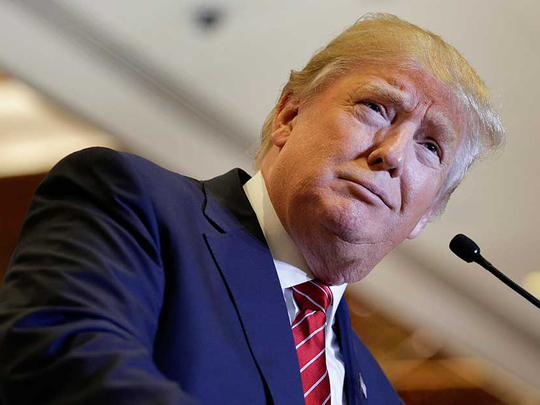
Most Americans believe that government is broken. So it’s hardly surprising that outsiders Donald Trump, Ben Carson and Carly Fiorina are doing well in the Republican nominating contest. They represent a break from the status quo. Trump especially stands out because he’s so colourfully disdainful of almost everything and everyone in government.
But voters should pause before placing their hopes in the personality of a strong person at the top: It will not work if he or she doesn’t have a coherent plan to unclog the gears of the government machinery underneath.
Remember that presidential candidate Barack Obama was a fresh face, brilliant on the stump and promising “change we can believe in”. Yet as soon as Obama took office, he got bogged down in the viscous bureaucracy. Even after winning congressional support for using economic stimulus funding to rebuild the United States’ decrepit infrastructure, he could barely move. There turned out to be no such thing as a “shovel-ready project” because the president, though duly elected, had no authority to escape from the legal goo of required studies, permits and processes.
Trump’s appeal is based on candour and power. He says he’ll start making decisions; no more pussy-footing around. Trump, in so many words, will make the trains run on time.
But how, exactly? He can’t ignore the law. The president is shackled by decades of accumulated statutes and regulations. He can’t say, “You’re fired!” That would violate civil service laws. He won’t be able to do almost anything he thinks he can.
The disappointment surrounding recent presidents is not due (mainly) to defects in their leadership qualities but to their failure to address the structural paralysis of modern government. Former president George Washington couldn’t run the government today. Sensible actions are usually illegal.
Getting permits for infrastructure projects can take a decade. So can Food and Drug Administration approvals. Obsolete programmes such as New Deal farm and labour subsidies live on forever, adding to the red ink burdening our children. The World Bank Group ranks the United States 46th in the world in ease of starting a business. Year after year, the bureaucracy grows ever larger, weighing down citizens with more rules and forms.
Washington doesn’t just need new leadership. It needs a vision for how to unstick the gears. That should be the main focus of the current presidential campaign, not Planned Parenthood or some other hot-button issue. Last week, Jeb Bush released a report calling for a radical simplification and updating of the regulatory state (including some ideas I proposed to him). There’s plenty in the report for other candidates to take issue with, but Bush has made a responsible contribution to the debate we need. His report says that “Americans in schools, hospitals, and small businesses — even within government itself — are tangled up in red tape that makes no sense to them or anyone else”. It calls for a shift in the current philosophy of regulation toward simpler structures that liberate Americans’ common sense. It offers concrete ways to get there, including streamlining authority to approve new infrastructure and creating “an independent commission to conduct a regulatory spring cleaning”.
Other candidates should rise to Bush’s challenge. What’s needed is not political grandstanding, but competing visions of how to fix our broken government.
The US is at a perilous point. When democracies lose the ability to deliver basic services, the ancient Greek historian Polybius observed, the public gives up on democratic governance and reaches for a “monarchic master” who promises everything to everyone. When such leaders have taken over throughout history, it has rarely ended happily.
There’s little disagreement about the ineffectiveness of Washington. But where’s the vision of how to fix the problem? To paraphrase Yogi Berra, if you don’t know where you’re going, you might end up somewhere else.
— Washington Post
Howard is a chair of Common Good and author of The Rule of Nobody.










